By 2030 only digital meters in Flanders
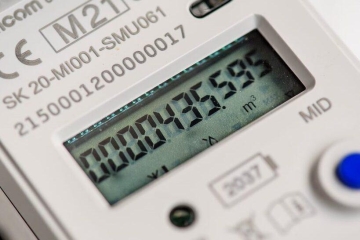
On 18 February 2022, a young family in Ninove in one go received three new utility meters in their home, all three replacing their existing analogue meters for gas, electricity and ... drinking water. Hence they kicked-off of a pilot project in which three Flemish drinking water companies jointly work together with network company Fluvius to install the new energy and water meters simultaneously for their customers. In this way, any inconvenience for customers is kept to a minimum, while beneficial effects are also achieved in other areas.
On 18 February 2022, a young family in Ninove in one go received three new utility meters in their home, all three replacing their existing analogue meters for gas, electricity and ... drinking water. Hence they kicked-off of a pilot project in which three Flemish drinking water companies jointly work together with network company Fluvius to install the new energy and water meters simultaneously for their customers. In this way, any inconvenience for customers is kept to a minimum, while beneficial effects are also achieved in other areas.
On 18 February 2022, a young family in Ninove in one go received three new utility meters in their home, all three replacing their existing analogue meters for gas, electricity and ... drinking water. Hence they kicked-off of a pilot project in which three Flemish drinking water companies jointly work together with network company Fluvius to install the new energy and water meters simultaneously for their customers. In this way, any inconvenience for customers is kept to a minimum, while beneficial effects are also achieved in other areas.
Under this pilot project, a total of some 70,000 drinking water meters will be installed at the same time as energy meters. This mainly involves replacing existing analog meters. This project is preparing for the large-scale rollout that will ensure that all customers of the drinking water companies involved have a digital water meter by 2030. This is in line with the objective of the Flemish government.
Targeted collaboration
FARYS joined forces with fellow companies De Watergroep and Pidpa to coordinate all technical and operational aspects related to drinking water. Together, they will collaborate with Fluvius in the field of communications between the counters at customers' premises and the respective utility companies. Fluvius has been installing digital energy meters since 2019 and has already built up extensive expertise.
The objective is to ensure that in practice the digital drinking water meters are installed simultaneously with the energy meters. This at least in the respective distribution areas of the participating water companies. The other Flemish water distributors opted for a separate installation of their smart meters.
The companies involved provide extensive communication and information to customers and other stakeholders. To reinforce their joint approach, the three drinking water companies are conducting the campaign under a joint "Digital Water Meter" logo.
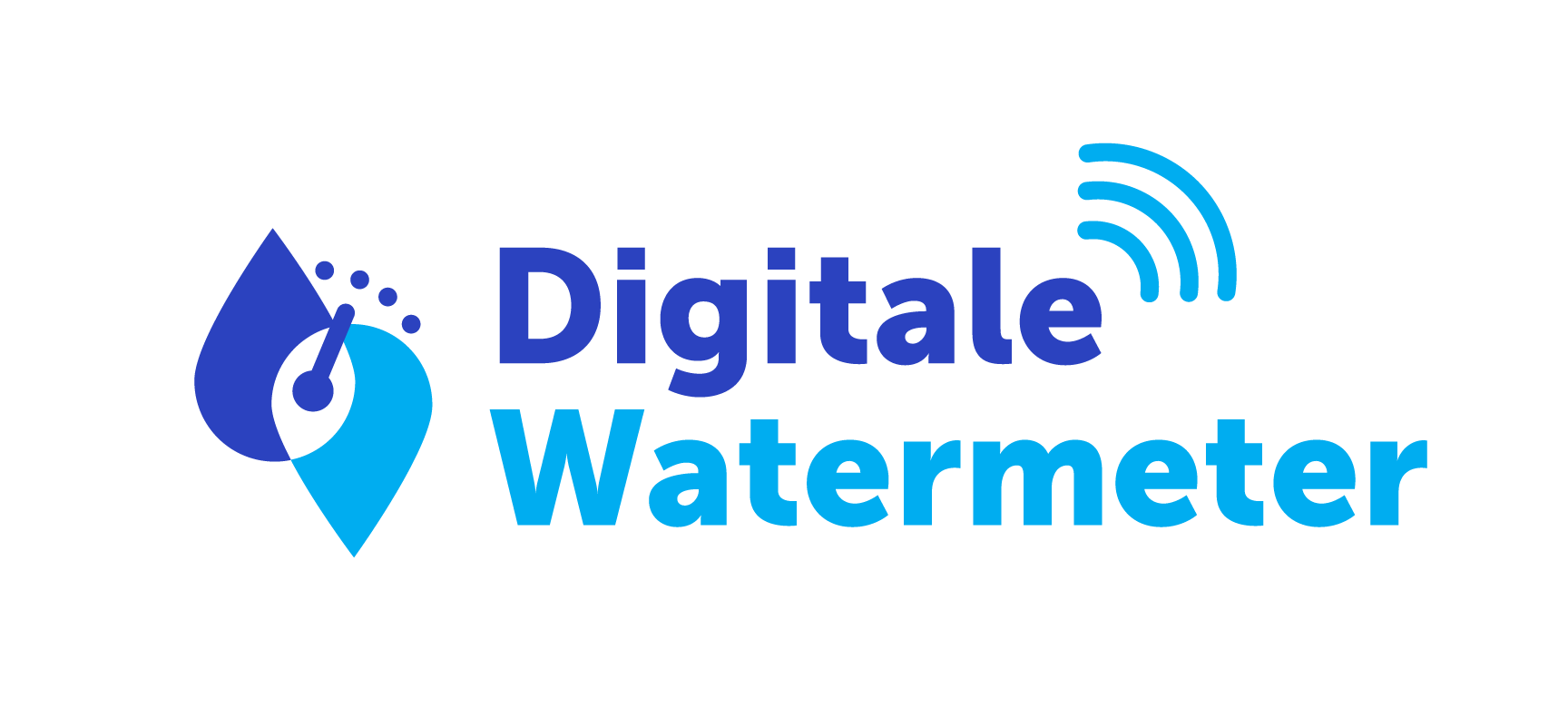
Advantages and possibilities
A digital water meter offers quite a few advantages over an analog or mechanical counter. The device sends or receives data by itself and that means less hassle or work for the individual customer. For example when a customer moves house or at the time of his annual statement for which he no longer needs to pass on the meter reading himself.
It is not in scope of the current pilot project, but once in use, the digital water meter provides the possibility to each customer to monitor the water consumption in real time and gain insight into his consumption pattern. This via an app or via the customer portal MyFARYS.
Furthermore, the feasibility to provide relevant notifications or alarms for customers is being investigated. For example, when an abnormal consumption pattern is detected, such as an acute leak or a persistent 'ghost' consumption. In this way, losses can be limited as well as the risk of possible major damage.
The technology also opens up new possibilities for drinking water companies. The administration around meter readings and billing will be streamlined and data quality strengthened.
The frequent flow of information will also enable the water companies to register leakage losses on branch lines and also offers possibilities for detecting local leakage losses in their network. And this will benefit network efficiency.
Furthermore, information can also be used to bolster quality assurance within the distribution networks. This in the first place through automatic alerts of any backflow of water from a private indoor installation to the public network, but also on the basis of temperature records.
Finally, the drinking water companies are also investigating other possibilities in the context of optimizations, insights and applications that the (communication) technology used can offer for all stakeholders and not necessarily only for drinking water distribution.
Sustainable
The evolution towards digital drinking water meters also fits in a broader sustainability approach and perception. The meters will give the possibility to raise awareness and insight into subscribers' own consumption patterns. But also to explore the possibilities that real-time data offers for drinking water operations and policy.
In any case, the technology itself allows potential for new, perhaps as yet unknown, applications and combinations in a wide field of activities including, but not limited to, drinking water and energy.
Investing in the future
Even though all parties agree on the usefulness and necessity of this evolution, for the drinking water sector this transition represents a substantial investment, of which a positive return can only be expected after the full rollout.
For the customers in any case, the replacement of their current mechanical drinking water meters by digital ones is free of charge.
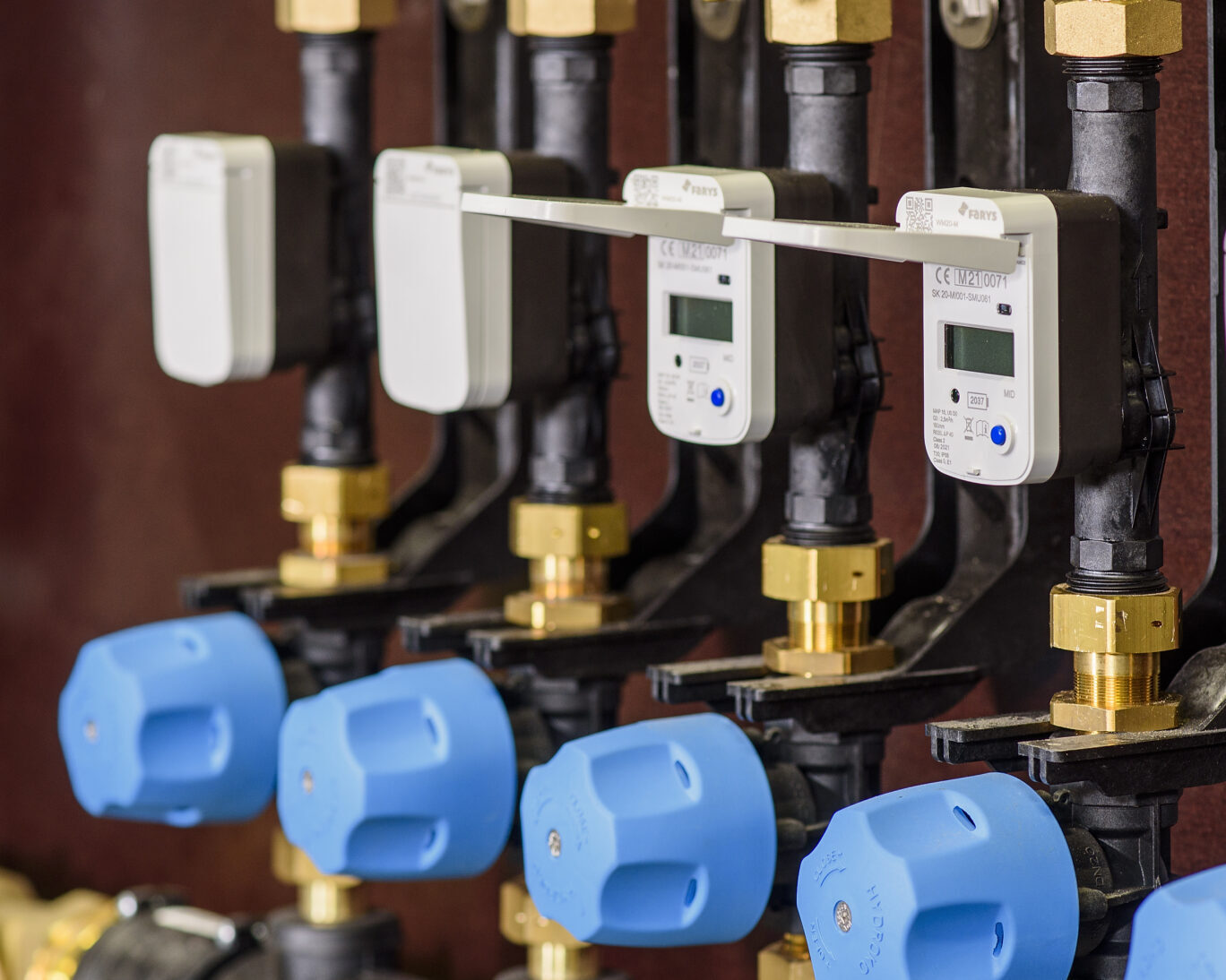
Latest insights & stories
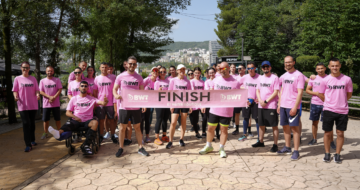
A Global Movement: The World Unites in a Pink Pledge for Clean and Sustainable Water
5,000 participants. 32 countries. €30,000 funds raised. And that's just the beginning.
Picture this: One step that sends ripples across the globe, transforming lives and creating waves of change. You might wonder, how can such a simple action for most of us have such a profound impact?
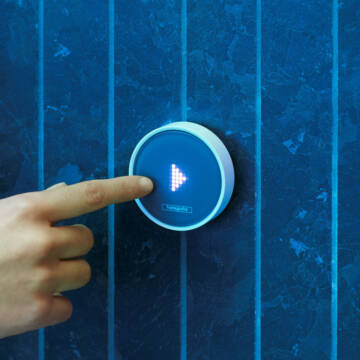
RainTunes: Douchescenario's voor de ziel
Licht, geluid, geur en aanraking: samen met experts hebben we sensuele scenario's ontwikkeld die van douchen een persoonlijke ervaring maken. Of je je nu wilt voorbereiden op de komende dag of wilt ontspannen na een workout. Of je je wilt opfrissen na een dag werken of wilt ontspannen aan het eind van de avond: RainTunes verrast met multisensorische ervaringen.*
*Momenteel enkel in Duitsland en Oostenrijk verkrijgbaar.
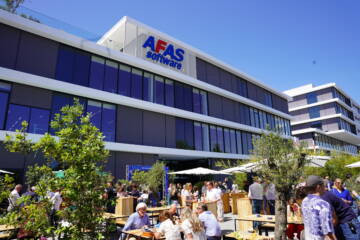
De toekomst van werk: de vierdaagse, 32-uren werkweek omarmen met AFAS
Living Tomorrow, toegewijd aan het onderzoeken van de toekomst van werk, deelt haar inzichten over een baanbrekend initiatief van onze gewaardeerde partner, AFAS Software. Dit vooruitdenkende bedrijf heeft een gedurfde stap gezet om het traditionele werkparadigma te herdefiniëren door een vierdaagse werkweek van 32 uur te introduceren voor al zijn werknemers.